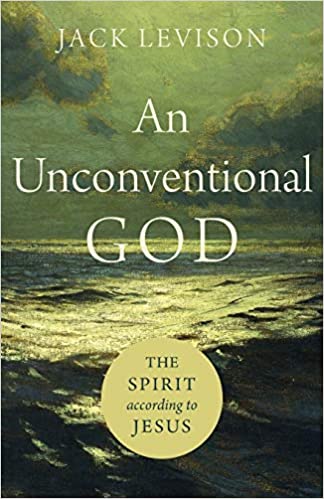BEN: I like your emphasis on the ideas that the Spirit entered Jesus or remained on Jesus. I would suggest the Gospel writers are suggesting he is the first person in Biblical history to have the continuous presence and power of the Spirit in his life. From a Biblical theological point of view, it is important to add that Jesus doesn’t begin his ministry before this happens, not least because he is going to draw on the very same resources, God’s Word and God’s Spirit, that will be bequeathed to his disciples who will perform the same sort of preaching and miracles. In other words, Jesus’ miracles and ministry are not manifestations of his divine nature, but rather are making clear he is drawing on the same resources his disciples will later draw on. This is the divine condescension of the begotten Son. In the Incarnation (see Phil. 2) he puts the omnis on hold (e.g. omnipotence, omniscence) so he could live a fully human life subject to the normal limitations of being human—limitations of time, space, knowledge, power, and mortality. Notice I did not say sin, as that is not a normal limitation. God did not create us as sinners. So, for instance, Jesus says he casts out demons by the Spirit of God, not by his divine nature. Jesus remained the only begotten Son in the Incarnation, but he limited himself, drawing on the same resources believers have to do the work of ministry and to resist temptation etc. Does this make sense to you? How would you respond?
JACK: Perfect sense. I completely, absolutely agree with you. On this one, there is no “on the other hand!” It is precisely the point Jerry Hawthorne made in The Presence and The Power: The Significance of the Holy Spirit in the Life and Ministry of Jesus. I talked about Jerry earlier. Jerry contended that Jesus did what he did, not so much by dint of his divinity as his experience of the Holy Spirit. By the way, Jerry took a lot of grief from his evangelical readers for saying this. He was right, of course, but some evangelicals have difficulty accepting scripture, I think, when it cuts against the grain of a dearly-held doctrine, such as the divinity of Jesus.
BEN: In your study of Jesus’s temptations I understand the reason for comparing it to the story of Adam and Israel— Jesus is Adam gone right, and Israel gone right. But I wonder if you considered comparing it to the story of Job and his testing? After all, Job is God’s righteous one, and he is powerfully tested.
JACK: I didn’t, even if I should have. Perhaps the absence of a reference to the Spirit at the front of Job caused me to overlook this text, while the recurrence of the same Greek verb to describe the expulsion of Adam from Eden and Jesus from the Jordan prompted me to focus on the Adam and Eve story.
By the way, there is a good bit of Tom (N.T.) Wright lying behind my Adam-Jesus take on the temptation. When I was at Cambridge, way back in 1978-80, Tom was a young chaplain,
who was willing to take me under his wing. The ideas I heard in tutorials (brilliant even back then) I would later read in massive tomes.












